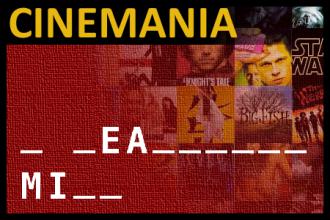Guess the movie title
Film was made in 2001. After a brilliant but asocial mathematician accepts secret work in cryptography, his life takes a turn to the nightmarish.Correct answers: 80
The first user who solved this task is Djordje Timotijevic.
#brainteasers #movie #film #cinemania

Right baby
A Brit, a Welsh fellow, and a Pakistani gentleman were seated in the waiting area of a local hospital's maternity ward.
A nurse appears and informs the men, "Apologies, but we have encountered a mix-up, and we're unsure which baby belongs to which mother. Could any of you assist in figuring this out?"
The British man rises to the occasion and offers his help. He enters the ward and, after a short while, emerges holding a baby who is clearly of Pakistani descent. The Pakistani man stands up, exclaiming, "What do you think you're doing?!"
To which the British man replies, "Look, one of those babies is Welsh, I'm not taking any chances!"

